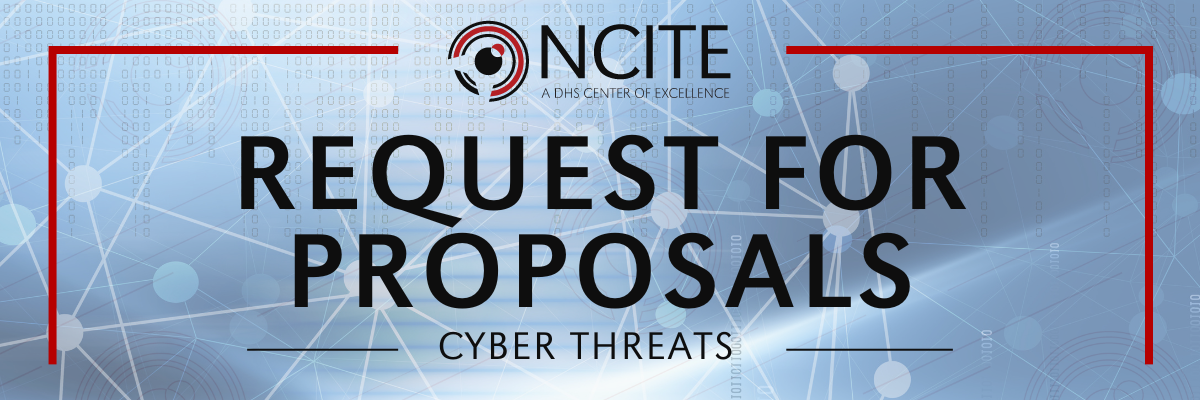Request for Proposals: Threats to Cyber Infrastructure

NCITE's 2025 Cyber Threats Request for Proposals has closed.
Thanks to all who submitted proposals. Announcements about awards will be made in the coming weeks.
In the meantime, if you'd like to learn about more ways to get involved with NCITE, please sign up for our mailing list.
If you have any questions about the RFP process, please send them to NCITERFP@unomaha.edu.